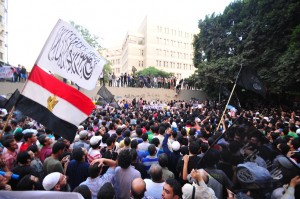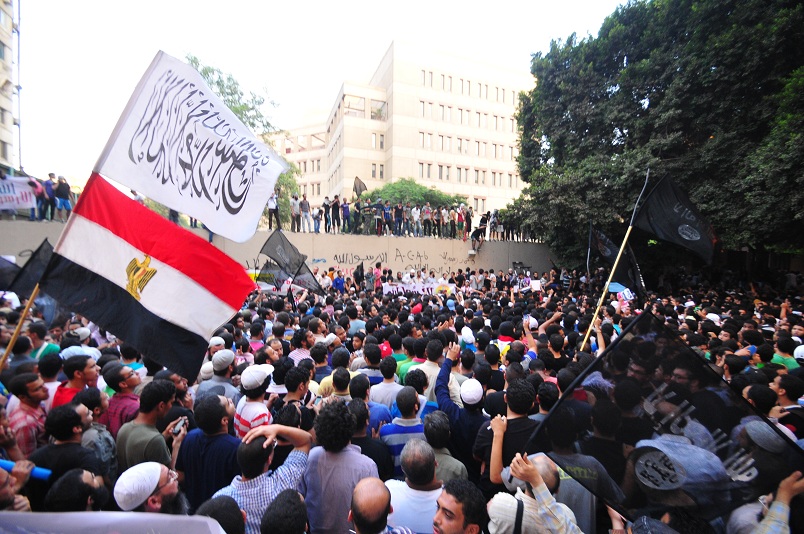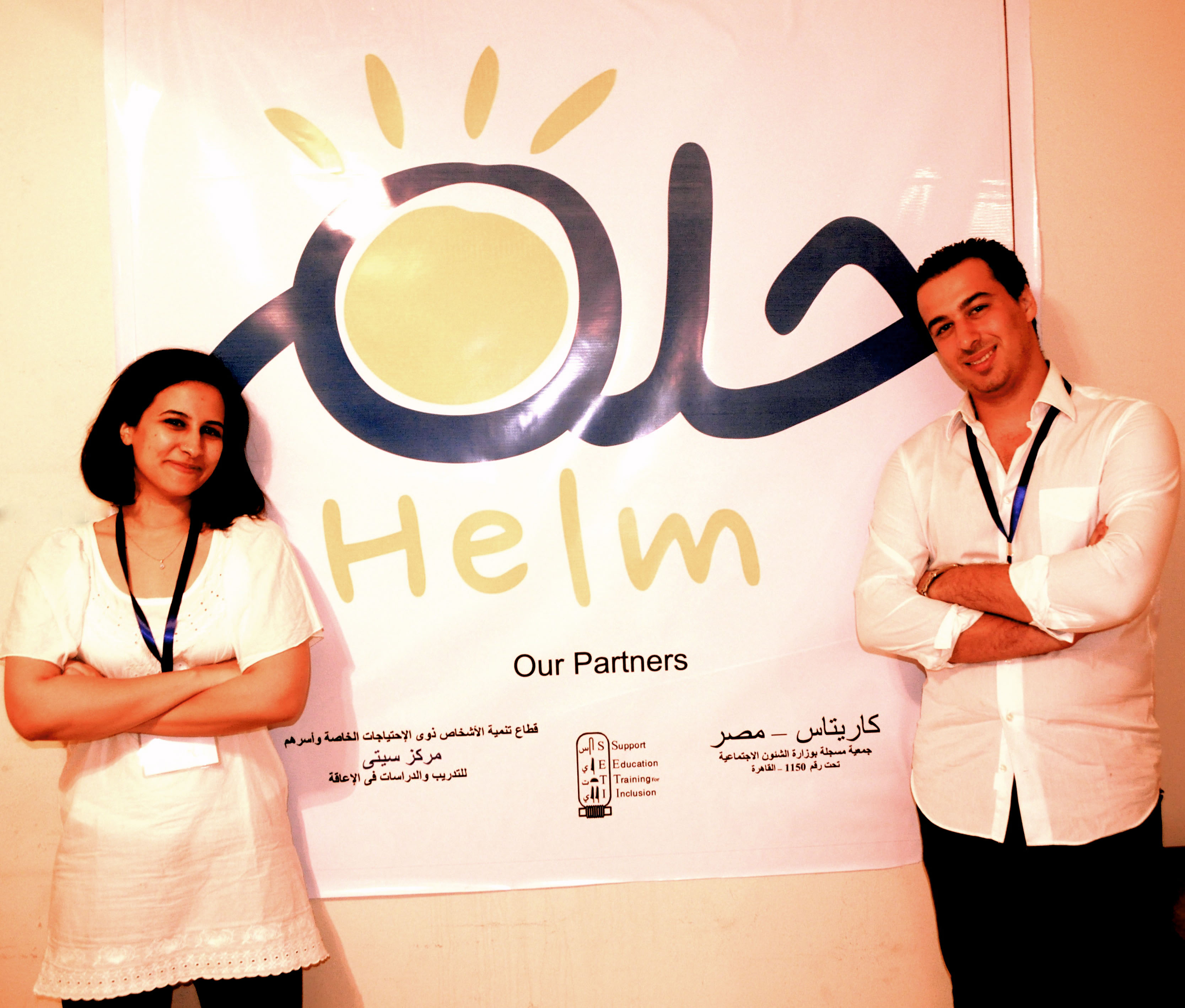
Hassan Ibrahim / DNE
The United States Ambassador to Libya John Christopher Stevens and four staff members of the embassy were killed in attacks on the Benghazi consulate on Tuesday night, the White House confirmed. The Libyan government has also said that an undisclosed number of Libyan security officers also died in the attack. Ambassador Stevens died from “injuries sustained in the attack” according to a press release from the US State Department.
Unidentified gunmen stormed the US consulate in Benghazi, opening fire on the compound and throwing handmade bombs. Libyan security personnel reportedly engaged the gunmen but had to withdraw when they were outmatched.
According to CNN, senior officials in the US government have said that the military has deployed drones looking for jihadi encampments in Benghazi and other parts of eastern Libya Wednesday night, as suspicions that Al-Qaeda linked groups may have had a hand in Tuesday’s attacks.
“I have directed my administration to provide all necessary resources to support the security of our personnel in Libya, and to increase security at our diplomatic posts around the globe,” said US President Barack Obama on Wednesday, “While the United States rejects efforts to denigrate the religious beliefs of others, we must unequivocally oppose the kind of senseless violence that took the lives of these public servants.”
The attack in Benghazi came after thousands of protesters gathered in front of the US embassy in Cairo in response to a film insulting Islam and the Prophet Muhammad. Those demonstrating demanded the revoking of Egyptian citizenship by those involved in the making of the film and an apology from the US government.
The protest coincided with an already planned Salafi protest at the embassy on 11 September to demand the release of Omar Abdel Rahman.
Demonstrators in Cairo scaled the walls of the embassy in Garden City Tuesday night, tore the US flag, and raised a black flag favoured by Islamist groups. Protests continued in Garden City throughout Wednesday.
Four protesters were arrested and are currently under investigation for attempting to break into the embassy.
A wide range of Egyptian groups condemned the film, including Coptic Christian groups and Al-Azhar. Parties across Egypt’s political spectrum including Al-Nour Party, the Freedom and Justice Party, and the Free Egyptians Party also spoke out against the film.
“The United States Embassy in Cairo condemns continued attempts by some misguided individuals to hurt the feelings of religious Muslims – just as we condemn the attempts to offend the faithful of all religions,” the US embassy said in a statement released on Tuesday.
In an interview with AP on Tuesday from an undisclosed location, the creator of the film, Israeli filmmaker and California real estate developer Sam Bacile was unapologetic, calling Islam a “cancer” and that his film would help Israel by exposing Islam’s flaws.
A 13-minute collection of segments from the film The Innocence of Islam portrays the prophet Muhammad in an offensive and distasteful manner. Bacile told AP that the two hour film had been publicly screened only once earlier this year in a mostly empty theatre in Hollywood, California. He blamed lax embassy security for Tuesday’s events in Cairo and Benghazi.
Clips of the film were shown on Al-Nas channel on 9 September on ultra-conservative Islamic host Khaled Abdallah’s television show. During the segment, parts of the film dubbed in Egyptian Arabic were shown. Abdallah and his guest repeatedly implicated that Copts living abroad were responsible for the making of the film. The conservative Islamist television channel has already had complaints filed against it for controversial comments made about Copts on a separate occasion earlier this year.
While much anger was directed towards Copts living abroad for helping in the making of the film during Tuesday’s protests, reports state that no American Copts had a role in its creation.
However, a list of ten Copts residing overseas was placed on a watch list by the Egyptian general prosecutor in response to a complaint of their involvement in promotion of the film. Those on the list will be investigated for reports of blasphemy.
Meanwhile President Mohamed Morsy has asked the Egyptian embassy in the US to take legal action against the film’s creation.
Morsy’s Spokesman Yasser Aly confirmed the condemnation of the film and said that while Egypt believes in the freedom of expression and peaceful protest, Christians and Muslims in Egypt stand together to oppose the film. The statement also stressed that Egypt is responsible for protecting all foreign missions.
The Freedom and Justice Party released a statement condemning the creation of the film, insisting that US Coptic Christians had created it for personal agendas and to create sectarian strife. The party also expressed “regret” at the storming of the embassy.
“The United States deplores any intentional effort to denigrate the religious beliefs of others. Our commitment to religious tolerance goes back to the very beginning of our nation,” said US Secretary of State Hillary Clinton on Tuesday in a statement condemning the attack on the US mission in Benghazi. “But let me be clear: there is never any justification for violent acts of this kind.”
Libya’s interim president Mohamed Al-Megarif apologised for the attack on the Benghazi consulate, and called the acts “cowardly.” He promised to bring the attackers to justice and offered his condolences for the death of the ambassador and the three other Americans.
The Muslim Brotherhood has called for peaceful protests outside of mosques across Egypt on Friday in response to the film.
John Christopher Stevens had a 21-year diplomatic career in the Middle East and North Africa. Before being appointed ambassador to Libya, he served as US envoy to the Libyan opposition during the country’s civil war. Stevens is the first US ambassador to be killed in the line of duty since US Ambassador to Afghanistan Adolph Dubs was killed in an exchange of gunfire in 1979 following his kidnapping. Stevens was 52 years old and had been stationed across the Arab world including Cairo and Damascus and spoke fluent Arabic.



